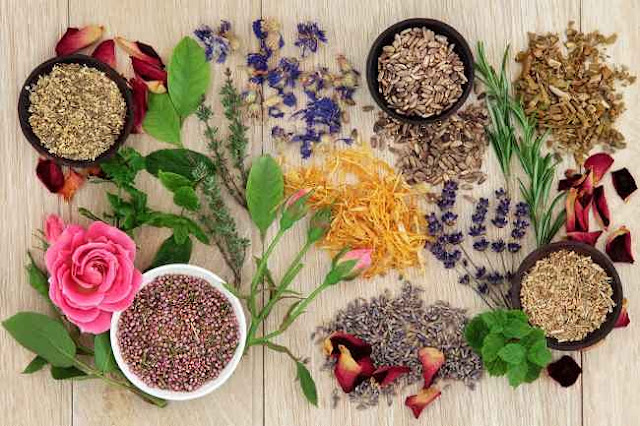Taking Herbal Medicine Safely
Indonesian people still believe in herbal medicine. This can be seen from the still many traveling herbalists or various herbal medicinal products on the market, such as ginseng, aloe vera, spirulina, propolis or ginkgo biloba.
The rise of the use of herbal medicines in Indonesia is also related to the many types of plants in this country. Indonesia is listed as one of the countries that have abundant plant wealth. But are medicines made from these natural ingredients safe for consumption?
Herbal medicines are made from herbs or a mixture of plant extracts to treat disease or maintain health. Herbal medicines can be made from leaves, flowers, stems, roots, fruits, and even seeds. Then these ingredients are processed and packaged in capsules, tablets, oils, ointments, or drinks in the form of tea. Examples of plants that are often consumed as herbal medicines are srikaya.
Because it is made from natural ingredients, people also think that herbal medicines are safe and do not hesitate to try them, especially if they have been used for a long time.
Regulation and Standardization of Herbal Medicines in Indonesia
Basically herbal medicines circulating in Indonesia are safe for consumption, with a note that the product has been registered with BPOM RI. In Indonesia, herbal medicines are grouped into two types, namely traditional herbal medicines and non-traditional herbal medicines.Traditional herbal medicine
Known as traditional medicine or herbal medicine. The ingredients have been used for generations and are a recipe for Indonesia's cultural heritage.
Nontraditional herbal medicine
The content of this drug does not exist in the history of traditional Indonesian medical treatment or is not hereditary, but has the potential to benefit the body.
Effectiveness of Clinical Herbal Medicines
Herbal medicine has a content and way of working that is very complex. Although generally considered natural, but that does not mean herbal medicine is entirely safe. Different from medical drugs, herbal medicines have different ways of working in treating diseases. If conventional medicines are aimed at specifically treating the disease, herbal medicines generally have more role in the body's recovery process. Almost all plants have antioxidant effects or content in them. Antioxidant activity in herbal medicine is what makes it used in helping to handle various conditions such as cancer, memory loss, Alzheimer's disease, diabetes, and cardiovascular diseases such as atherosclerosis. Scientific facts from various studies so far have concluded that the effectiveness of herbal medicines clinically is still not supported by strong and consistent evidence. Some people claim to feel better after taking herbal medicine, but there are also reports of poisoning after taking herbal medicine. So if you want to use herbal medicines as a method of treatment, you should consult with your doctor first.Tips To Be Safe Using Herbal Medicines
Most natural ingredients used as herbal medicines are safe for consumption. Although safe, herbal medicines also have the potential to cause both mild and serious side effects on the body. Information about possible side effects usually appears on the packaging. In order to avoid danger, here are safe tips on taking herbal medicines.- Be sure to buy products that have been registered with BPOM RI.
- Don't forget to check the product expiration date.
- Follow all instructions for use with the dosage listed on the package.
- Contact the product customer service if you want to know more clearly about their products.
- Before taking it, make sure you consult your doctor first.
Pregnant and nursing mothers
Pregnancy is a time when mothers have to be careful in consuming anything, including herbal medicines. What is consumed by pregnant women can affect the condition of the fetus so that it can result in miscarriage, premature births, or babies born with disabilities. This also applies to nursing mothers. Intake for breastfeeding mothers can be contained in breast milk. Substances contained in herbal medicines may have an impact on baby's health.
People who will undergo surgery
There are some herbal remedies that can slow blood clotting or thin the blood. This can have a bad effect if the herbal medicine is taken before undergoing surgery. One example is ginkgo biloba. Consumption of this herbal medicine must be stopped at least two weeks before surgery because it can slow the blood clotting process.
Currently taking certain drugs
Herbal medicines can also cause serious side effects if taken together with medical drugs, such as blood pressure-lowering drugs, blood-thinning medications, and diabetes medications.
Have certain diseases
Herbal medicine that was originally intended to provide good benefits, can actually aggravate the condition of a person's illness. For example herbal medicine bitter. This drug is believed to be able to boost the immune system, but can also be dangerous if bitter is consumed by sufferers of autoimmune diseases. Then there are also herbal medicines made from gotu kola. Gotu kola and kenikir leaves should not be consumed by people who have liver disease. According to research, consuming gotu kola can increase the risk of liver damage.




Komentar
Posting Komentar